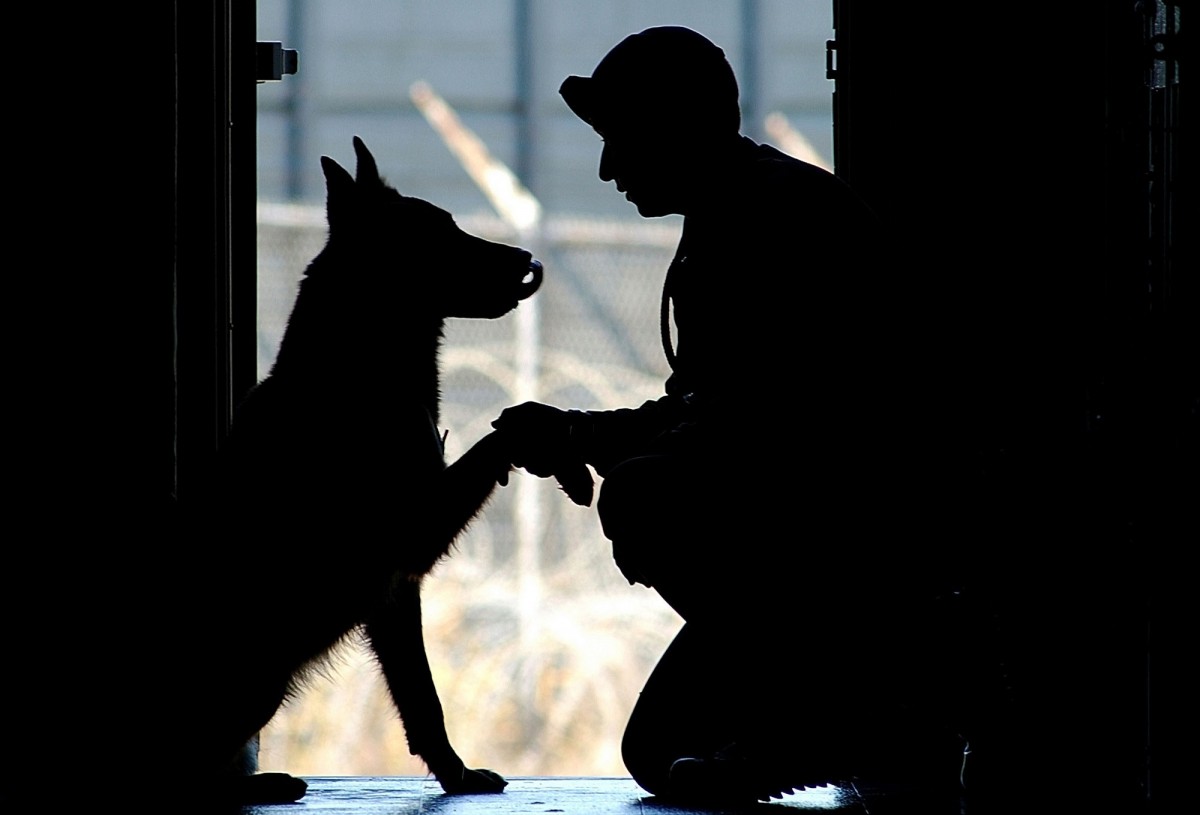
Service dogs perform an invaluable service to people every day. Certain physical and psychiatric conditions can be helped by having a highly trained animal companion to assist you as you move about your day.
What kind of animal companion are you allowed to have? Can any dog be a service dog? Are there any restrictions? If you’ve ever asked these questions, we’ve got the answers for you.
Do Service Animals Have to be Dogs?
According to the ADA, the category of service animals is reserved for dogs and miniature horses. Due to their excellent service characteristics and gentle demeanors, dogs are the most common type of official and legally protected service animal.
As official service animals, service dogs are granted a number of rights by federal, state, and local county laws. Miniature horses that provide help for disabled individuals also come with rights, though these protections are not as extensively legally detailed as with dogs. Because of their size, miniature horses may not be allowed in all places that a dog would be allowed, but they are subject to similar regulations.
These are the only two species of animals allowed to be classified as service animals under American law. Other animals can be therapy animals and emotional support animals, but they are not given the same legal protection as a service animal that helps its handler perform complex tasks.
What Kind of Dogs Are Allowed to be Service Dogs?
According to the ADA, all breeds of domesticated dogs that have undergone training may legally be service dogs. There are no officially recognized service dog breeds.
However, you’re most likely to see one of a few specific breeds of dogs as service animals. This is not due to regulations, but because of those breeds’ characteristics and temperament.
While some cities, states, and local counties have laws banning particular breeds of dogs, these do not apply to service dogs. You are allowed to have any breed of service dog you want in any area of the US, even if a particular area has banned that breed as a pet.
Common Service Dog Breeds
Different physical, emotional, and mental conditions require different types of dogs. Not all dog breeds work well for all tasks. Psychiatric service dogs and physical service dogs need specific behavioral traits to do their best work, and only an elite few breeds are best at helping out.
Golden and Labrador Retriever
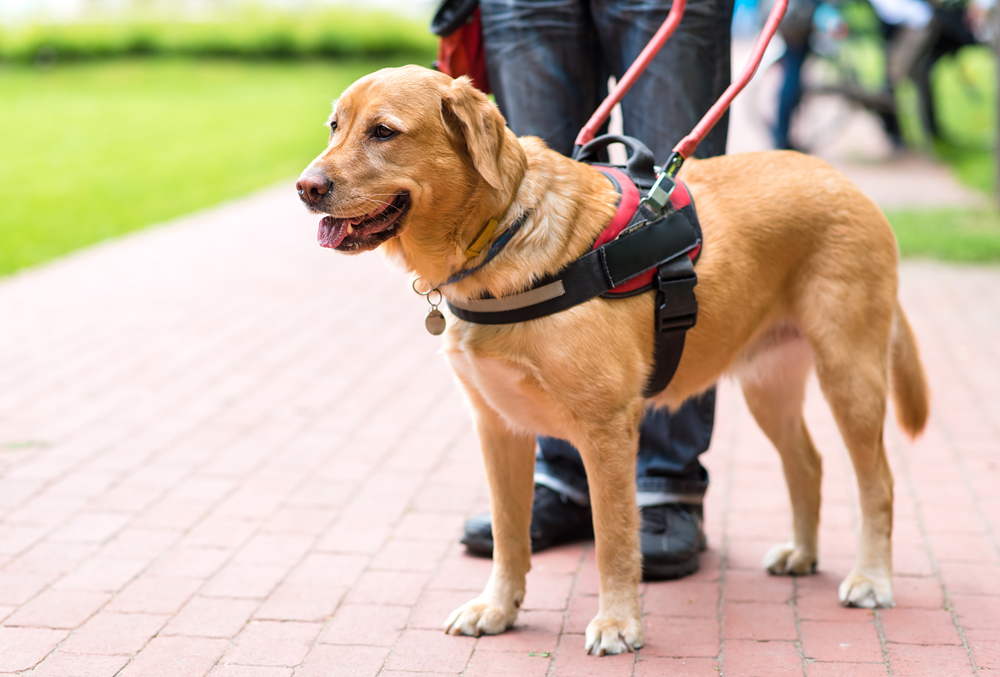


Both golden and Labrador retrievers make great service dogs. In fact, retrievers are the most common breeds trained for service work, with Labs slightly outnumbering golden retrievers. People love how friendly and loving these dogs are and how well they get along with people and other animals.
Retrievers do well with both physical and emotional tasks. They can grab things with their teeth gently, lead their handlers around outside or inside, and retrieve items on command. Both Labs and goldens develop a strong bond with their handlers and love to have responsibilities.
German Shepherd
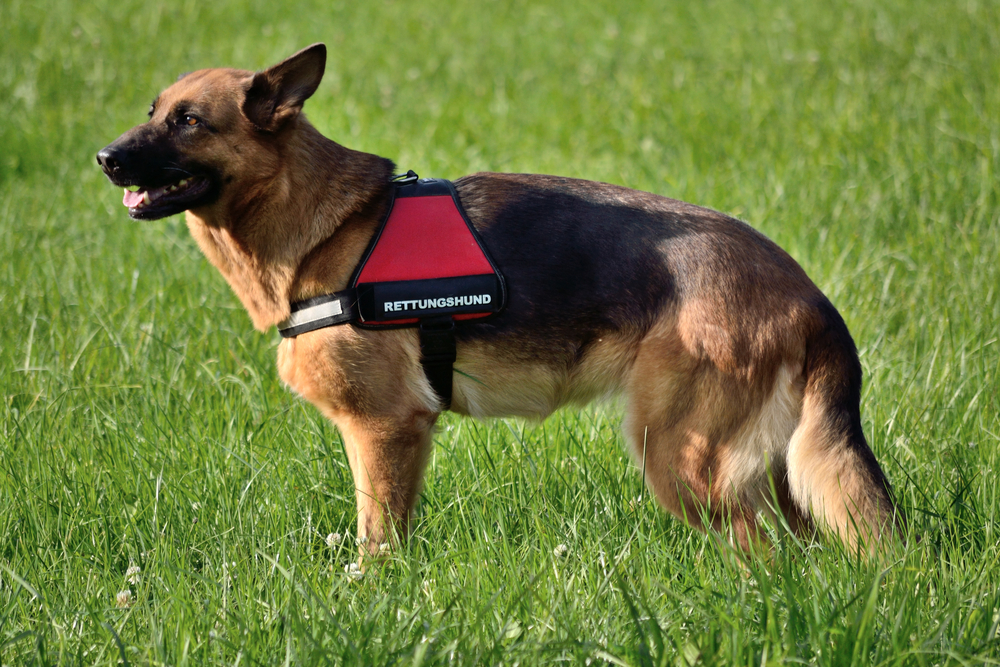


Large and physically strong, German shepherds have a reputation as police dogs. However, the same qualities that make excellent police dogs make them great service dogs as well.
German shepherds are easily trainable, loyal, intelligent dogs that form a strong bond with their handlers. Many German shepherds enjoy their working life, as it keeps them moving and gives them the satisfaction of pleasing their owners.
One task German shepherds are well qualified for is blood sugar monitoring, because of their powerful sense of smell. Their large size is also great for mobility assistance, either serving as seeing-eye dogs or balance assistance dogs.
Poodle
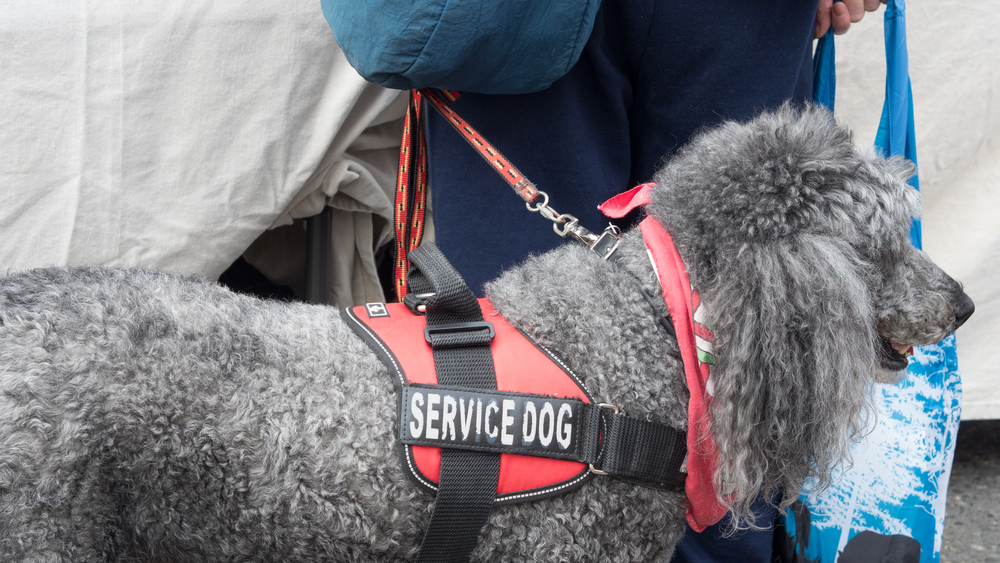


The best poodles for service work are full size, standard poodles. These dogs are large enough to help with many physical tasks, and their high intelligence makes them well-suited for working.
Poodles have a reputation for being easy to work with and easy to train. They love a challenge and enjoy working. Most poodles are passive dogs with a friendly nature. A unique benefit of owning a poodle as a service dog is its hypoallergenic fur. Poodles don’t shed as much fur and dander as other breeds.
Pomeranian
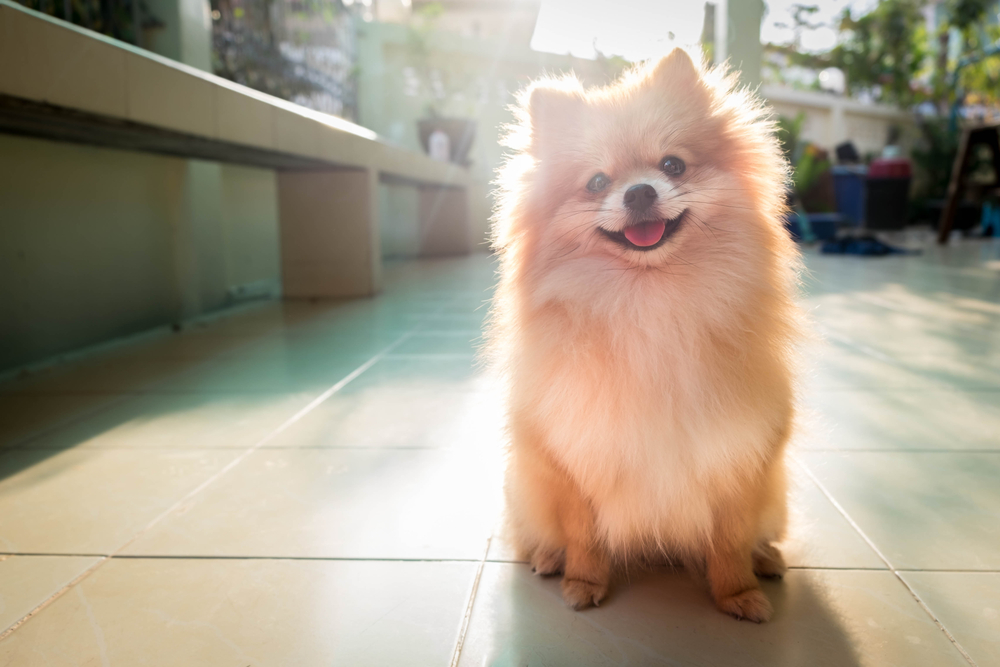


While Pomeranians are very small dogs, their little size makes them great psychiatric service dogs. They’re probably not appropriate for leading or balance help, but they can do retrieve small items. Most Pomeranians are very attentive to the needs of their owners, which makes them a perfect choice for those with certain psychiatric conditions.
When you don’t need a large dog for physical help, a Pomeranian is a smart, teachable dog that does great with psychiatric help tasks. Their small size means they’re easy to keep with you at all times for emotional support.
Boxer
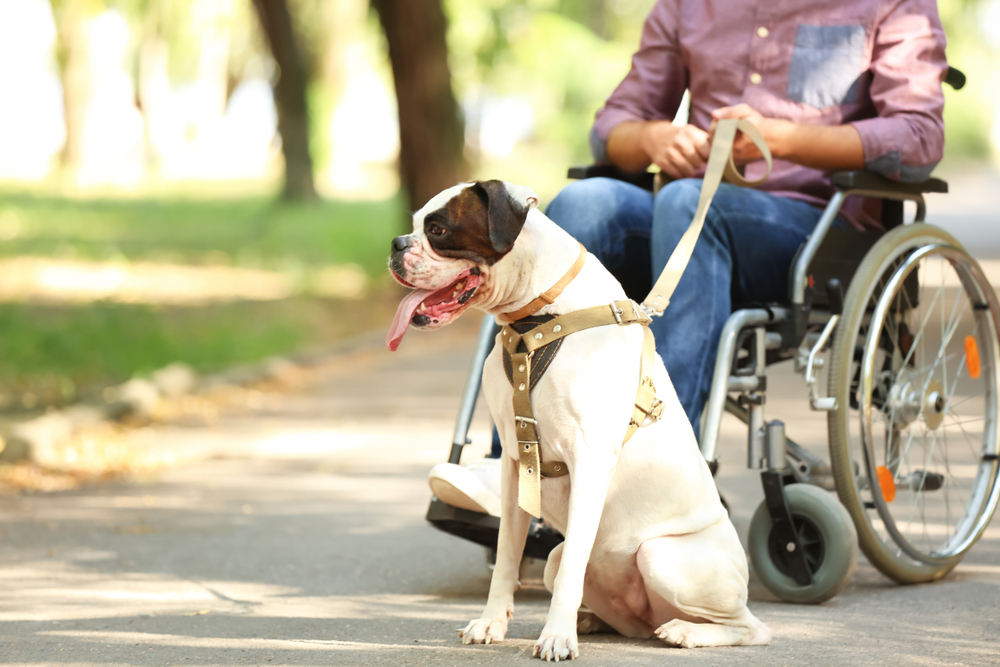


Boxers can make good service dogs for a variety of disabilities. They’re generally good-natured dogs that are friendly and gentle with all age ranges. Most boxers are comfortable in large and small groups and can be taught to navigate through a crowd.
With the intelligence to learn many tasks, especially tasks associated with work as a psychiatric service dog, boxers are a good choice for many families with children or loud households. Their friendly and patient nature means that they’re unlikely to become frustrated.
If you’re not very physically mobile and you don’t have a way to exercise your service dog, owning a boxer can be difficult. They have a lot of energy and will need regular exercise to stay healthy.
Border Collie
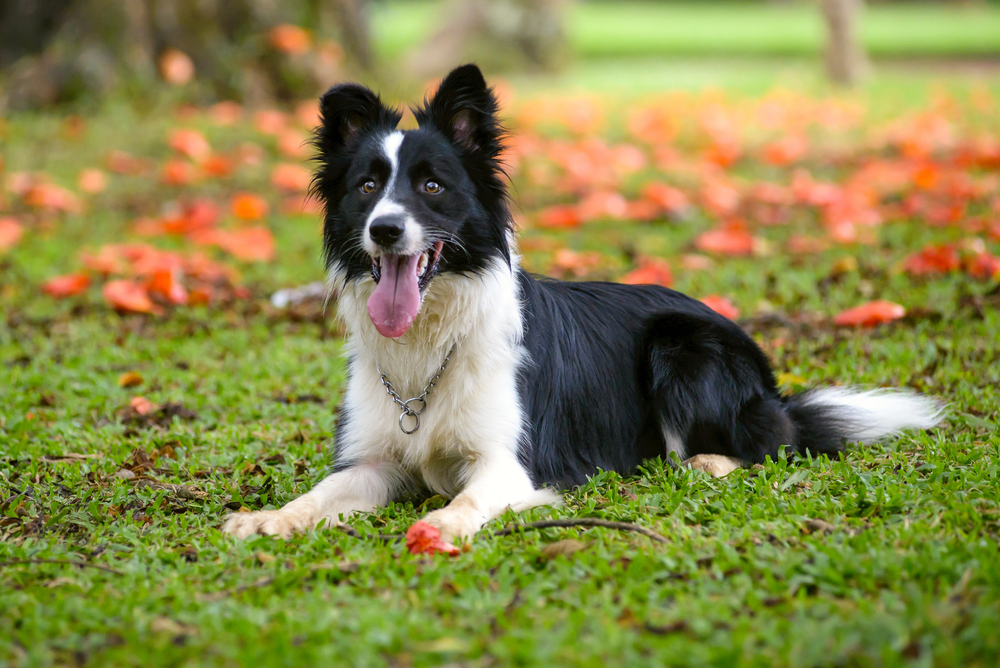


Used as farm dogs around the world, border collies have been working alongside people for hundreds of years. They are among the smartest dog breeds in the world, making them a great choice for handlers who need help with multiple complex tasks.
In general, border collies are good-natured dogs that do well with individuals or families. While some service dogs need work to stay happy and stimulated, border collies are usually pretty good at directing their extra energy towards non-aggressive working behaviors.
Before you get a border collie, you need to be prepared to handle their mental and physical needs. As highly intelligent and energetic dogs, they need mental stimulation and daily exercise to stay happy.
Bernese Mountain Dog
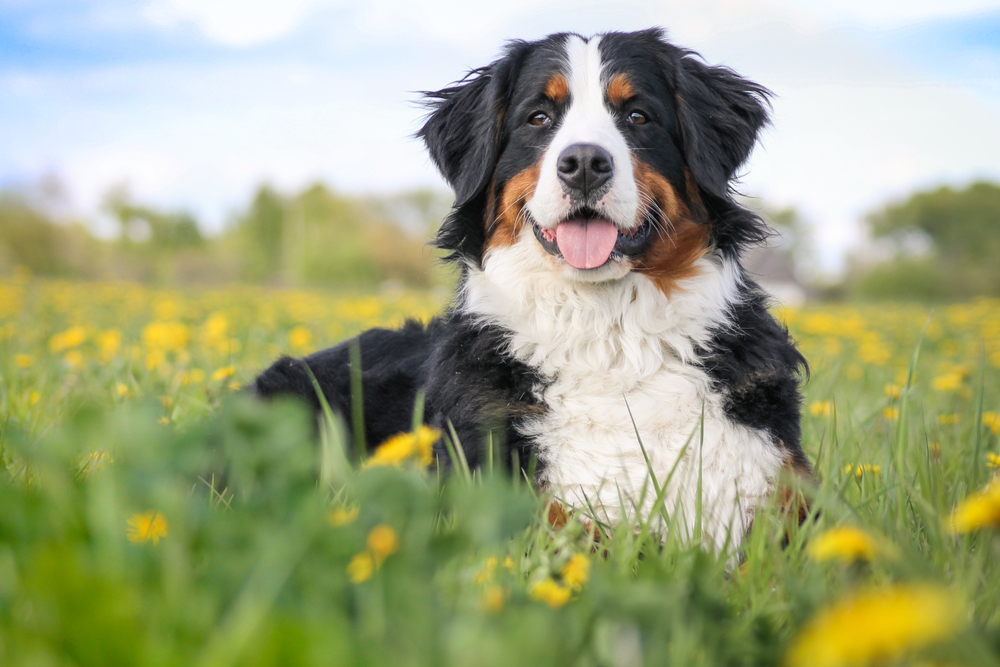


An elegant, dutiful, and gentle breed, Bernese mountain dogs are large animals that take well to service work. They are extremely friendly, love to please, and are physically strong enough to help their handlers help with physical tasks.
Because of their gentle demeanor, this breed is good for families and can handle work in distracting, public spaces. Good for both those with physical disabilities and those in need of emotional support, Bernese mountain dogs are capable of learning complex tasks and love to work with their handlers.
Cavalier King Charles Spaniel
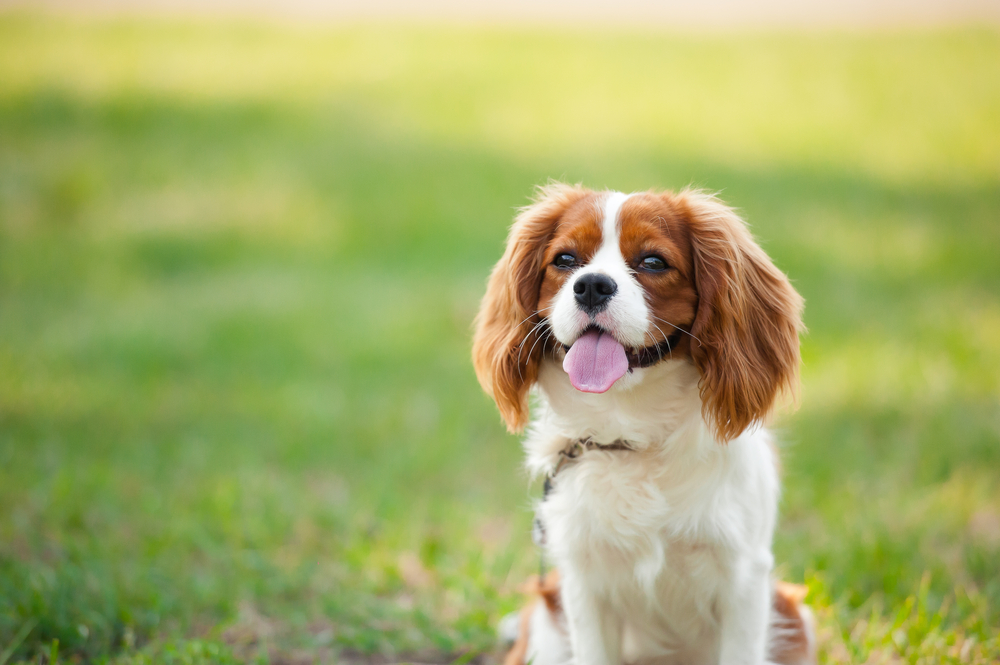


While cavalier King Charles spaniels are not necessarily the best choice for physical tasks, dogs of this breed tend to be very attentive to the emotional state and needs of their handlers. They’re commonly trained as psychiatric service dogs to help with PTSD, OCD, depression, and anxiety.
King Charles spaniels are lap dogs that tend to be strongly emotionally bonded to their handlers and enjoy being around them all the time. For psychiatric service dogs, this is a great quality, especially for those who need emotional support on top of their service dog’s normal tasks. As lap dogs with a low need for exercise, they’re not as demanding or high-energy as some of the larger breeds.
Traits to Look for in a Service Dog Breed
No matter which breed you choose as a service animal, the dog you choose to train should have the right character traits for success. Some dogs are not suited to the challenging life of a service animal. There should be a good balance of the following traits:
Intelligence
Being a service dog is complex, and each dog must master many multi-faceted tasks before being approved as a service dog. For your service animal to be successful, it will need to be able to learn and recall tasks. Not all dogs have the intelligence to learn and perform the necessary work. Some dogs, especially smaller dogs, have trouble remembering and learning what is necessary.
There is an abundance of breeds that tend to be intelligent and individual dogs of nearly any breed may be intelligent enough to be a service dog. By picking the right breed, though, you can end up with an intelligent dog that can handle the strenuous job requirements of service.
Friendliness
A service dog has to accompany you to many public spaces full of people. You want a friendly dog that doesn’t have a nasty disposition. Service dogs should be happy around large or small groups of people and shouldn’t react poorly when people approach them.
While standoffish dogs are great as guard dogs and family protectors, they’re not good service dogs. Consider that a service dog may have to interact with others while you’re having a medical emergency, depending on its training. You need a dog that’s enthusiastic about meeting new people, not afraid of social situations, and that can take its job seriously without being intimidating or aggressive towards others.
Emotional Composure
Friendliness isn’t enough. A calm disposition is necessary for service animals. They should be able to be calm and composed in all situations, including busy public environments. If your service dog isn’t calm, they may not be able to help you during chaotic situations when you most need them. Your dog has a job to do, and emotional composure is a huge part of that.
The ability to stay calm is invaluable for service dogs. They must not be hypersensitive dogs that overreact to situations. Training helps a service dog to learn when they’re allowed to be excited versus being calm, but they should already have a calm disposition. It’s unlikely that you’ll be able to train a hyperactive, excitable full-grown dog to be a calm service dog.
Reliability
You want a dog that’s predictable while it’s working. It’s not good for you to question whether or not your dog will respond appropriately when given a command. If they can’t reliably act under stress in every possible circumstance, they’re not fit to be a service dog for a disabled person. Dogs need to be there in emergency situations, so reliability in a service animal is key.
Energetic and Hard Working
Energy levels are important for a service dog. A service dog can’t be hyperactive, but also shouldn’t be lazy and unwilling to put in the work when you need it. Service dogs need the energy to do as much work as necessary without being difficult to control.
Along with the energy to perform their duties 24/7, they need to be hardworking enough to direct their energy to accomplish what you need. Not all dogs are willing to do the intense work required of service animals. Some have too much energy and get distracted from work too easily, while others are just unwilling to do the training or work every day. For this reason, a balance of these characteristics is necessary.
Willingness to Bond
Many dogs are loving and bond well with their handlers. However, some dogs are more individualistic and do not bond as well with humans. Your dog must be able to form a strong relationship with you so as to protect and help you. Some breeds are more social and better at bonding, while others are more individual and may not bond well. Choose a breed that has a reputation for strong connections.
Eager to Please
Many different breeds love to please their owners. As a disabled handler, you want a service dog that loves to please you. This character trait makes them easy to train and helps them to continue serving you faithfully for years.
Hypoallergenic
Because service dogs are allowed to enter many public spaces and businesses, you want a dog that won’t interfere with the health of others. They’ll also be in your home and near you often, so it’s for your own benefit as well. A hypoallergenic dog is great for public spaces where the allergies of others may be a concern.
Dogs that shed excessively, drool, or have other unhygienic qualities don’t make great service dogs in all cases. This isn’t always a deal-breaker if the dog has all the other qualities of a good service dog, but it’s an important part of the package.
Wrapping Up
Service dogs are treasured animals. You’ve probably seen them out and about while they do their job assisting their handlers. There is no one breed that is unequivocally better or worse than another at being a service dog, but all dogs have different traits and skillsets. Poodle, pomeranian, or retriever, the most important thing is to find a dog that’s kind, eager, and ready to work.